5 Types of waxes used in candles
Welcome to another blog post! I bet you thought that a candle is just a candle but did you know there is 5 most popular waxes used today and they are not all the same/safe. They mostly all have different characteristics, burn differently and hold fragrance differently. Let's dive in and learn all about these typs of waxes!
Soy Wax

Obviously our favourite and the type of wax we use, Soy wax is 100% natural as it comes from soybean oil! Using good quality fragrance oils paired with a cotton wick means no toxins and is a vegan friendly wax. If you have children or pets or worried about what you breath in, you can rest assured you're safe when burning soy. It will also hold the fragrance in better so you can keep smelling those beautiful candles without lighting them plus soy wax provides a longer burn time by 25-50%. Soy wax is biodegradable and easy to clean with hot soapy water. If it spills it won't stain and you'll be able to get it off. The only way you'll get black soot in your clean burning soy candle is if you haven't cut your wick before each burn. But none of my Hanson clan would get that 😉 because you all trim your wicks don't you? Lol
Coconut Wax

This type of wax is another natural type like soy wax and has very similar properties to the soy. Any candles using this type of wax is also great as it is biodegradable and some of them you can actually use as moisturiser or lip balm. Coconut soy wax gives off a shinier appearance and is clean burning as well. We have tested with this kind of wax but still prefer soy wax as we personally think soy gives a better scent throw.
Paraffin Wax

This particular wax is not sustainable or in my opinion a safe option and is also known as petroleum wax making it the cheapest! Anything that comes from petrol I would prefer not to be breathing in! Although some big brands use it, they actually add a small amount of soy into the mix so they can pass it off as soy but in fact is mainly paraffin wax. You'll find a lot of the candles using this type will have the most gorgeous colours and it does give off a great scent throw, but not great if you've got kids and pets around. These candles will also give off black soot even when you do trim the wick. Don't be fooled by a cheap candle because guaranteed it is made with this kind of wax. This is not biodegradable and extremely hard to clean, also be careful because if it's a coloured candle wax it can stain if spilled.
Palm Wax

Palm wax is another natural type of wax that comes from the palm berries. It is the hardest type of natural wax and you'll find is mostly used for pillar candles. There has been a lot of questions and press if it is at all environmentally friendly due to the destruction of rainforests in south east asia. I would suggest if buying these type of candles, make sure the palm wax being used has been sourced sustainably. This type of wax can be quite beautiful and you'll find has a feather type pattern in it. It can hold fragrance well and good for climates that are extremely hot.
Bees Wax

Bees wax as you can guess comes from the hives of honey bees. It is yellow in colour and comes with a slight honey tinge to it so have heard it can be difficult to make different fragrances that aren't too sweet. I think you'll often find these candles aren't fragranced at all for this reason. The great thing about this kind of wax is there has been scientific research finding that burning beeswax releases negative ions that neutralise potential toxins and removes them from the air! How cool is that? Making this a great option for asthmatics or people with allergies.

And there you have it, the five most popular waxes used in today's candles. As you can see there are different pro's and cons to each but we are very happy and confident with our choice in locally and ethically sourced Soy and know you are too.
Love The Hanson's xx
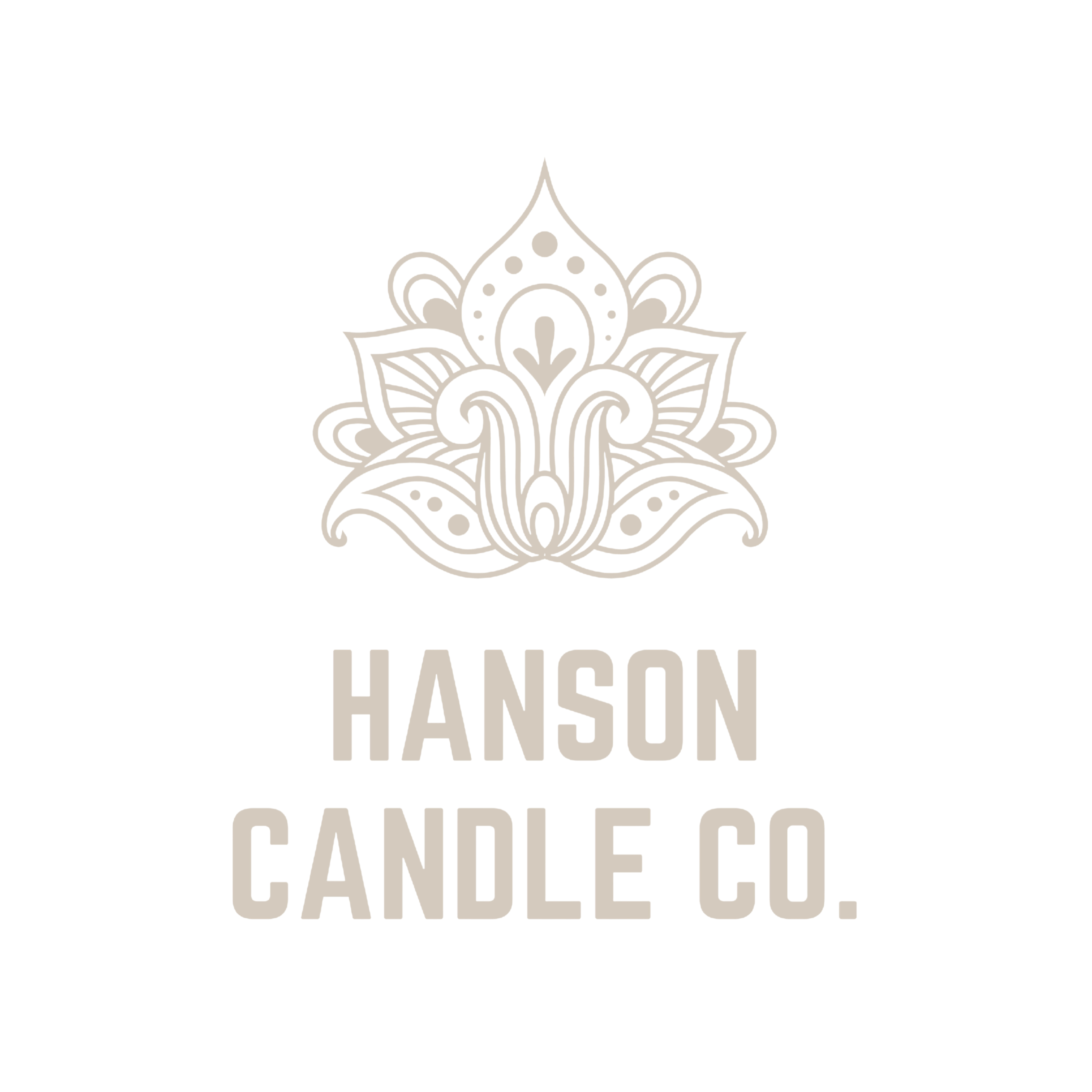

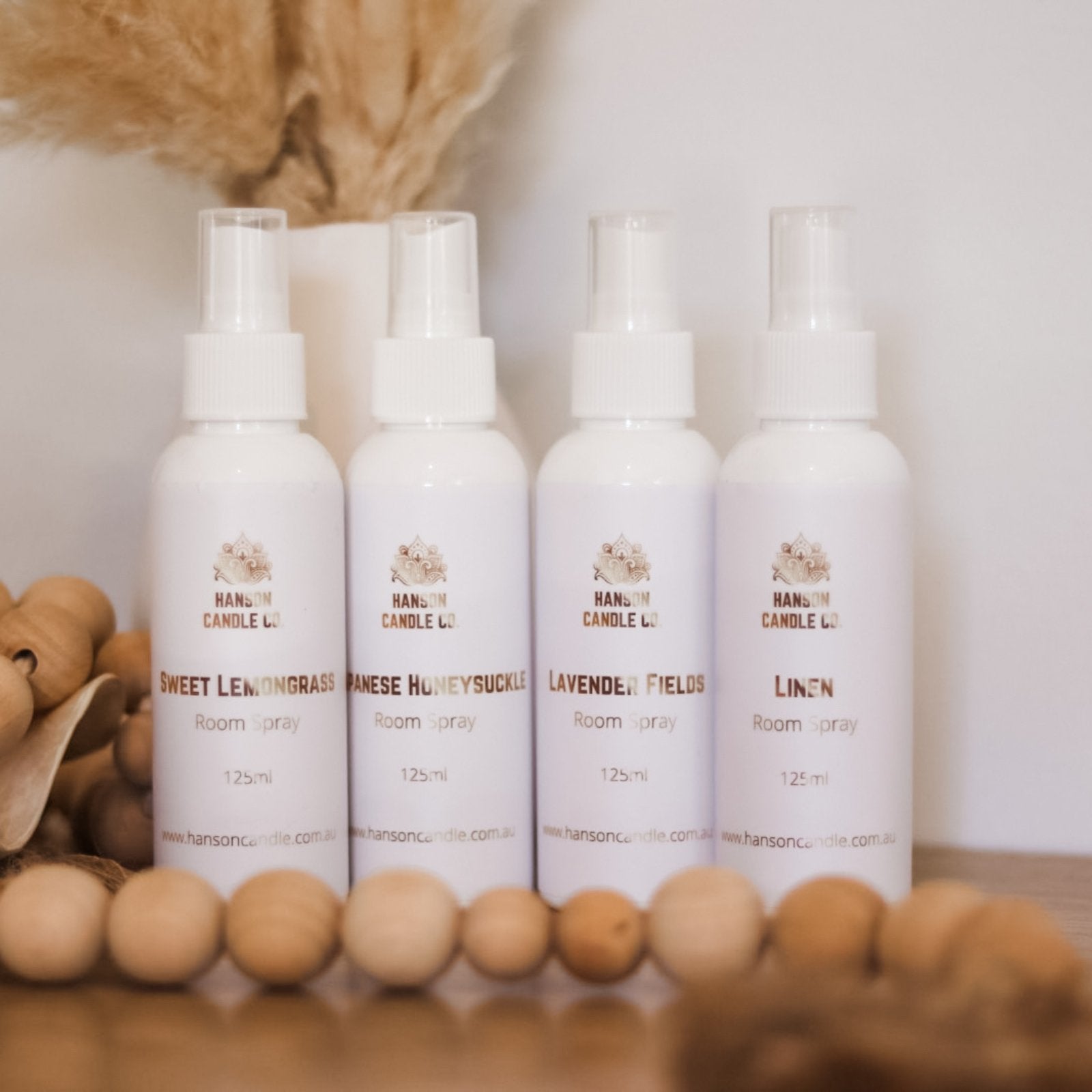
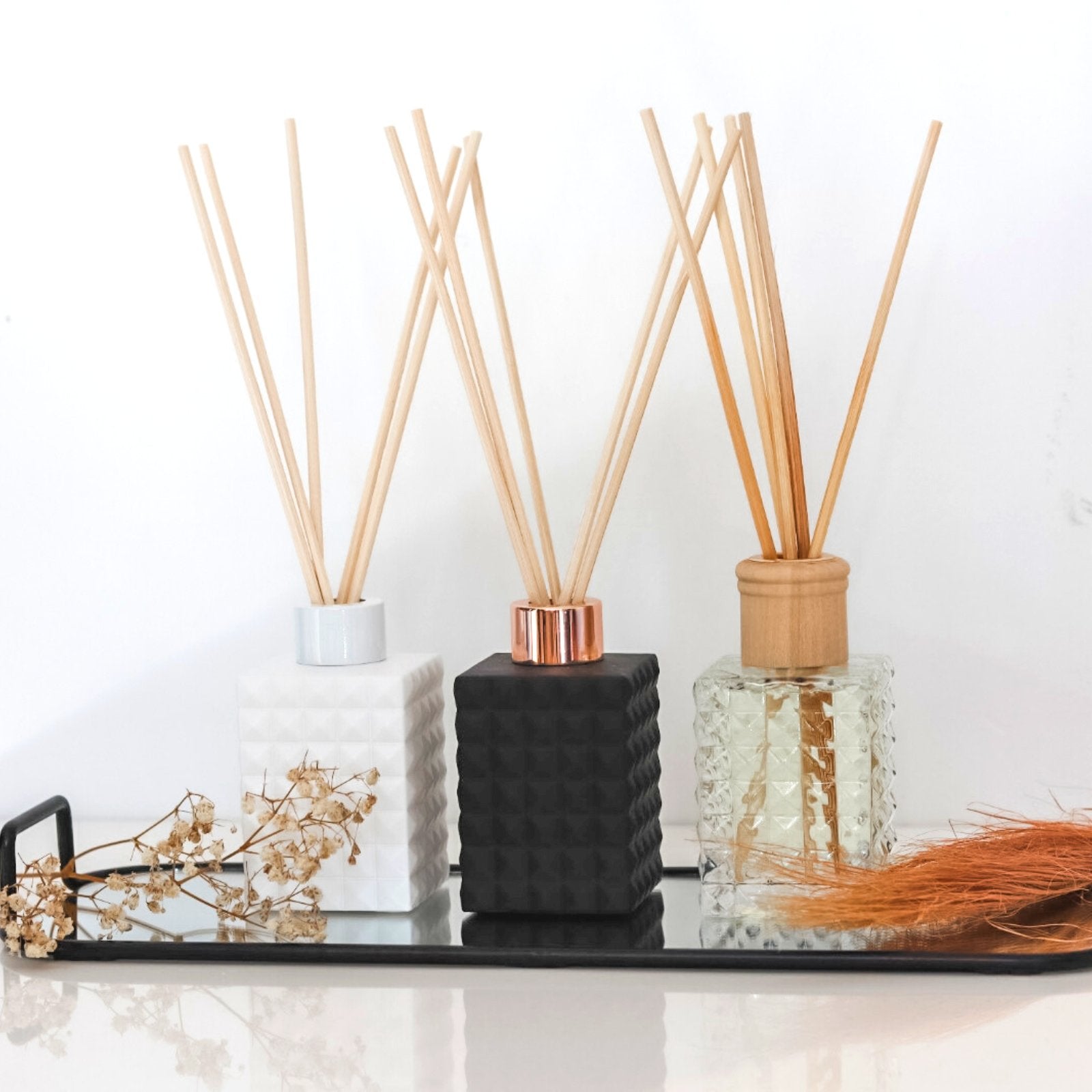
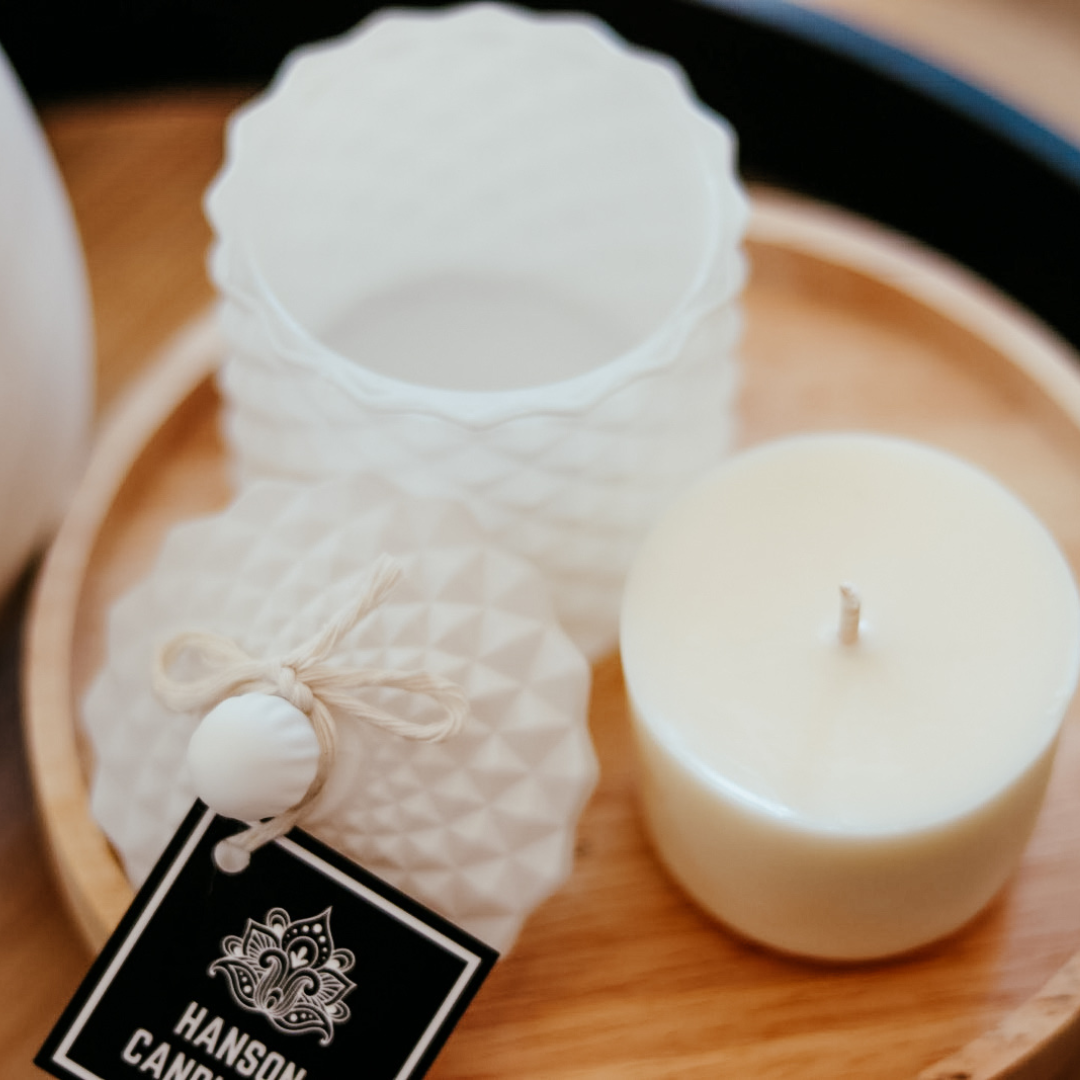
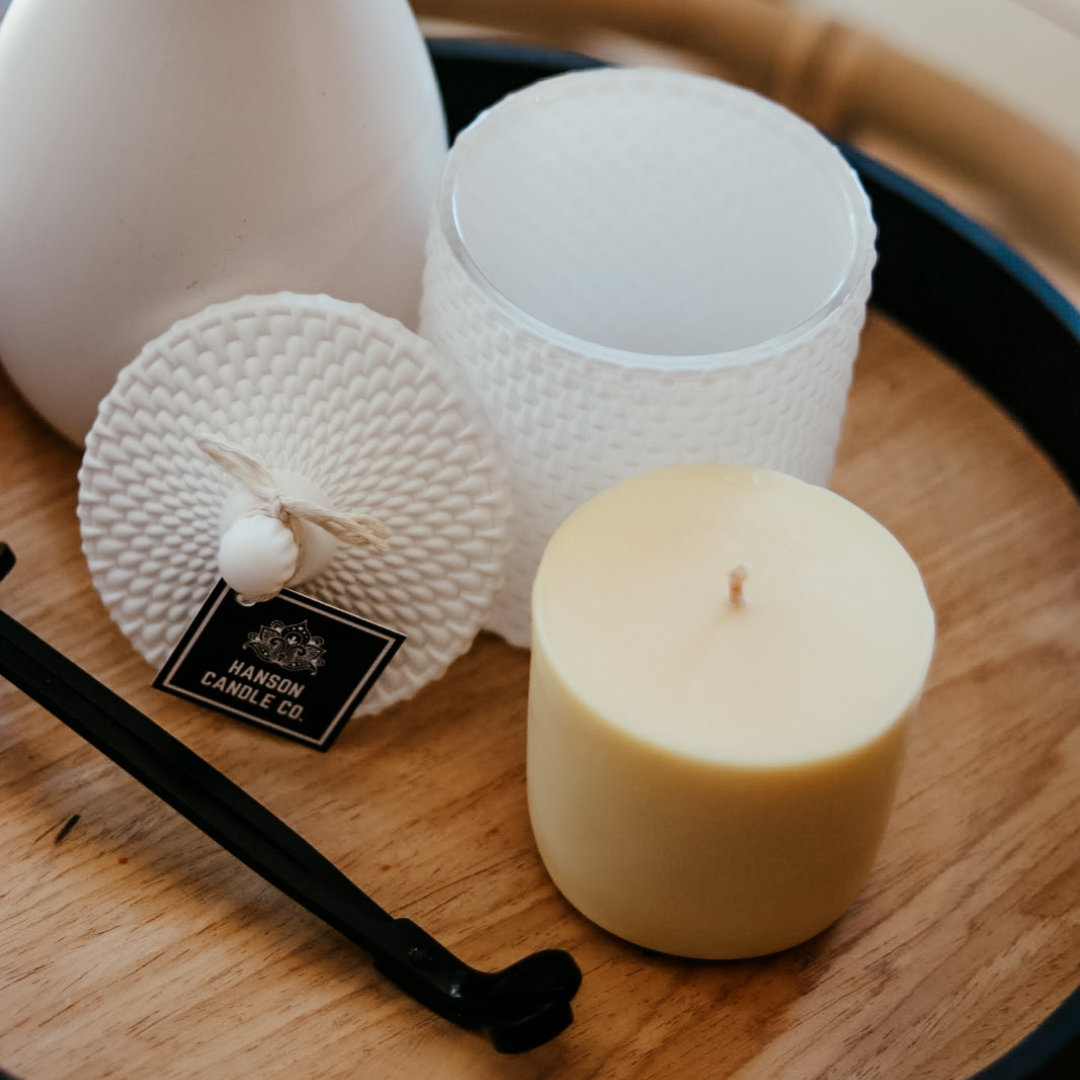
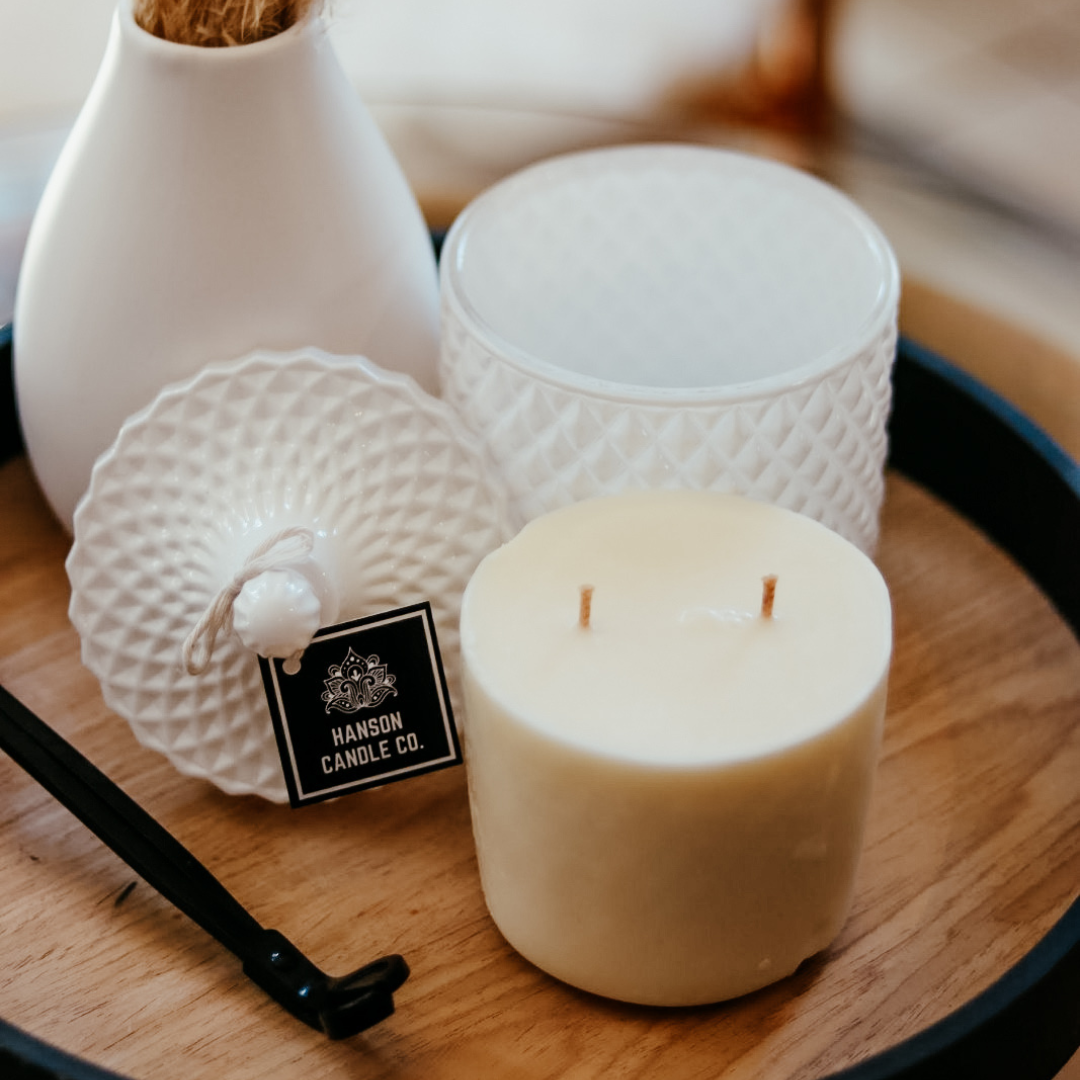


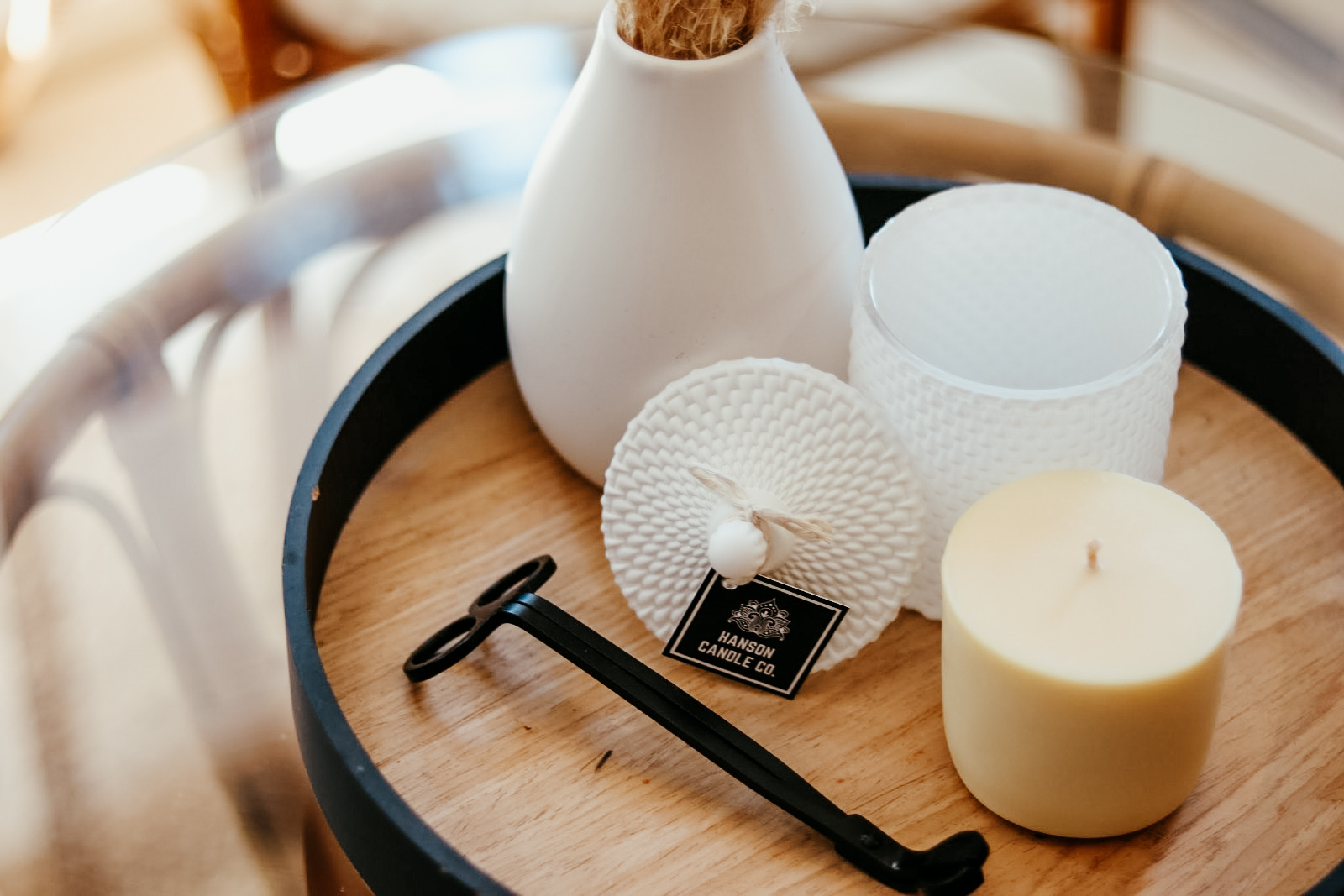
Leave a comment